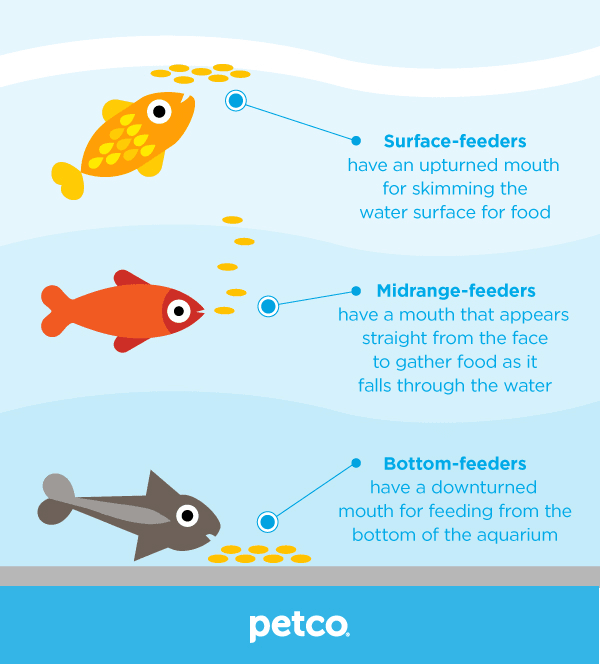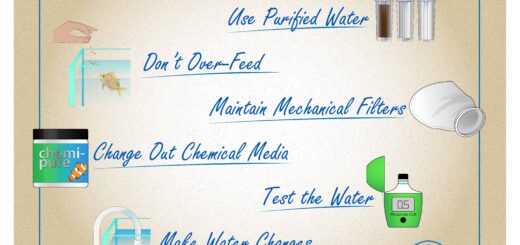Feeding Your Fish: Understanding Dietary Needs And Portion Control
In the fascinating world of fishkeeping, it is essential to understand the dietary needs and portion control for your underwater companions. Feeding your fish appropriately not only ensures their overall health and longevity but also brings vibrant colors and liveliness to your aquarium. From the specific dietary requirements based on species to the importance of portion control to prevent overfeeding, this article will guide you through the essentials of keeping your fish well-fed and thriving. So get ready to dive into the intricate world of fish nutrition and discover the secrets to maintaining happy and healthy aquatic friends.
This image is property of assets.petco.com.
Click here…Your Spirit Animal is Trying to Connect…
Why Understanding Dietary Needs and Portion Control is Important
Feeding your fish a balanced and appropriate diet is crucial for their overall health and well-being. Just like humans, fish have specific dietary needs that must be met in order for them to thrive. By understanding their dietary requirements and practicing portion control, you can promote fish health, prevent overfeeding and obesity, and maximize nutrient absorption.
Promoting Fish Health
Proper nutrition is the foundation of good health for your fish. When you meet their dietary needs, you can help strengthen their immune system, enhance their growth and development, and increase their resistance to diseases. By providing a well-balanced diet, you are ensuring that your fish has the necessary vitamins, minerals, and nutrients to maintain optimal health.
Preventing Overfeeding and Obesity
One common mistake fish owners make is overfeeding their fish. Overfeeding can lead to obesity, which can have serious health consequences for your aquatic friends. Obese fish are more susceptible to diseases, have a decreased lifespan, and may experience swim bladder issues. By controlling their portion sizes and understanding their feeding patterns, you can prevent overfeeding and keep your fish at a healthy weight.
Maximizing Nutrient Absorption
It’s not just about what you feed your fish but also how they absorb the nutrients from their food. By understanding their dietary needs and providing them with a well-balanced diet, you can maximize their nutrient absorption. Certain nutrients, such as vitamins and minerals, are essential for their overall health and growth. By ensuring that they receive the right amount and type of nutrients, you are helping them achieve optimal nutrient absorption.
Determining Your Fish’s Dietary Needs
Understanding your fish’s dietary needs is the first step in providing them with a healthy diet. Here are some factors to consider when determining their dietary requirements:
Researching Fish Species
Different fish species have different dietary preferences and requirements. Some fish are herbivores, while others are carnivores or omnivores. Researching the specific dietary habits of your fish species is crucial in order to provide them with the appropriate food.
Understanding Specific Dietary Requirements
Once you know the dietary preferences of your fish species, it’s important to understand their specific dietary requirements. Some fish require more protein, while others need a higher amount of fiber or specific vitamins and minerals. Understanding these requirements will help you choose the right food for your fish.
Considering Age and Life Stage
Just like humans, fish have different dietary needs at different stages of their lives. For example, young fish may require more protein and energy-rich foods to support their growth, while older fish may have different nutritional requirements. Take into account the age and life stage of your fish when determining their dietary needs.
Taking into Account Health Conditions
If your fish has any health conditions or specific dietary restrictions, it’s important to take these into account. Some fish may have allergies or sensitivities to certain ingredients, while others may require a specialized diet to manage a specific condition. Consulting with a veterinarian or aquatic specialist can help you determine the best diet for your fish’s specific health needs.
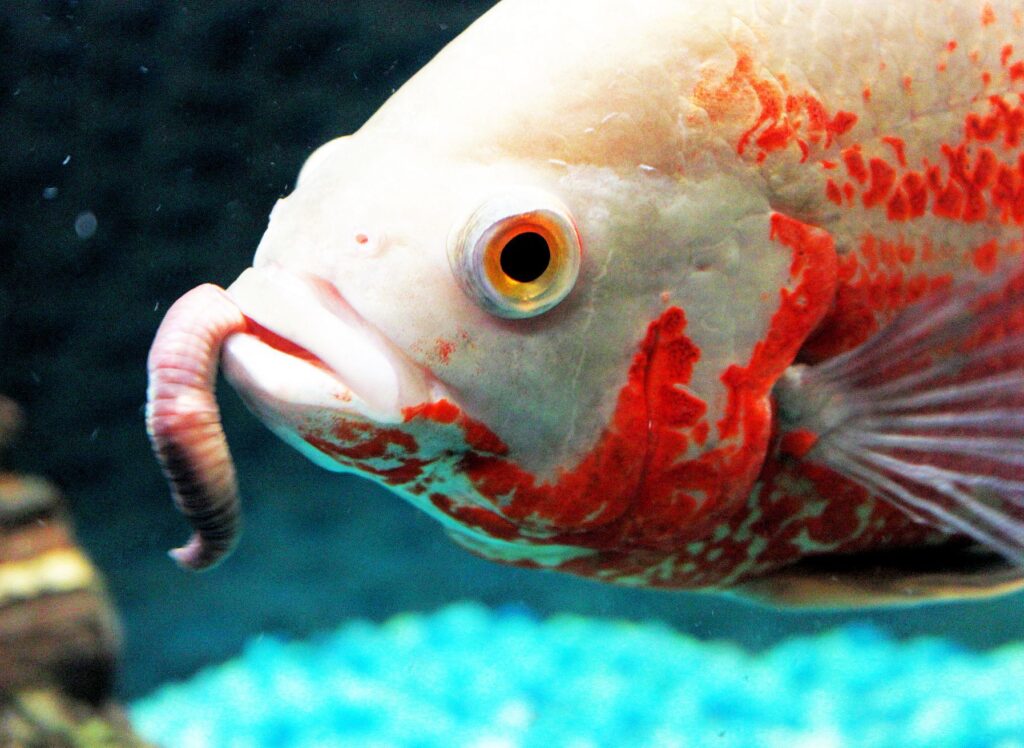
This image is property of www.thesprucepets.com.
Click here…Your Spirit Animal is Trying to Connect…
Choosing the Right Fish Food
Now that you understand your fish’s dietary needs, it’s time to choose the right fish food. The market offers a wide variety of options, so here are some common types of fish food to consider:
Pellets
Pellets are a popular and convenient option for feeding fish. They come in various sizes and are formulated to meet the nutritional needs of different fish species. Pellets are often designed to sink or float, depending on the feeding habits of your fish.
Flakes
Flakes are another common type of fish food. They are typically made from a mixture of ingredients, including protein, vitamins, and minerals. Flakes are easy to feed and can be crumbled into smaller pieces for smaller fish.
Freeze-Dried Foods
Freeze-dried foods are created by freeze-drying fresh ingredients, such as bloodworms, brine shrimp, or tubifex worms. This process helps to retain the nutritional value of the food while removing moisture. Freeze-dried foods are a great option for adding variety to your fish’s diet.
Frozen Foods
Frozen foods, such as frozen brine shrimp, daphnia, or mysis shrimp, are another option to consider. These foods are frozen shortly after being harvested, preserving their nutritional content. Frozen foods can provide a more natural diet for your fish and are especially beneficial for carnivorous species.
Live Foods
Live foods, such as daphnia, brine shrimp, or blackworms, are highly nutritious and can mimic the natural diet of many fish species. They provide stimulation and enrichment for your fish as they actively hunt and consume live prey. However, it’s important to ensure that the live food is safe and free from parasites or diseases before feeding it to your fish.
Supplemental Foods
In addition to the main diet, you may also consider offering supplemental foods to your fish. These can include treats such as freeze-dried or frozen bloodworms, vegetables, fruits, or specialized treats formulated for fish. Supplemental foods can provide additional variety and enrichment for your fish.
Creating a Feeding Schedule
Establishing a feeding schedule is essential for maintaining the health of your fish. Here are some factors to consider when creating a feeding schedule:
Frequency of Feeding
The frequency of feeding depends on the preferences and dietary needs of your fish species. Some fish may require multiple small meals throughout the day, while others may be fine with one or two larger meals. Research the specific needs of your fish species and adjust their feeding schedule accordingly.
Consistency in Meal Times
Fish thrive on a consistent feeding schedule. Try to feed your fish at the same time each day to establish a routine. Consistency in meal times helps regulate their digestion and prevents overeating or undereating.
Monitoring Fish Behavior and Health
Observing your fish during feeding time can provide valuable insight into their health and behavior. Healthy, well-fed fish will eagerly swim to the surface or feeding area when it’s time to eat. If you notice any changes in their appetite or behavior, it could indicate an issue with their diet or health.
Adjusting Feeding Amounts
As your fish grow or age, their dietary needs may change. Always monitor their weight and appearance to ensure that they are not becoming over or underweight. Adjust their feeding amounts accordingly to maintain their optimal body condition.
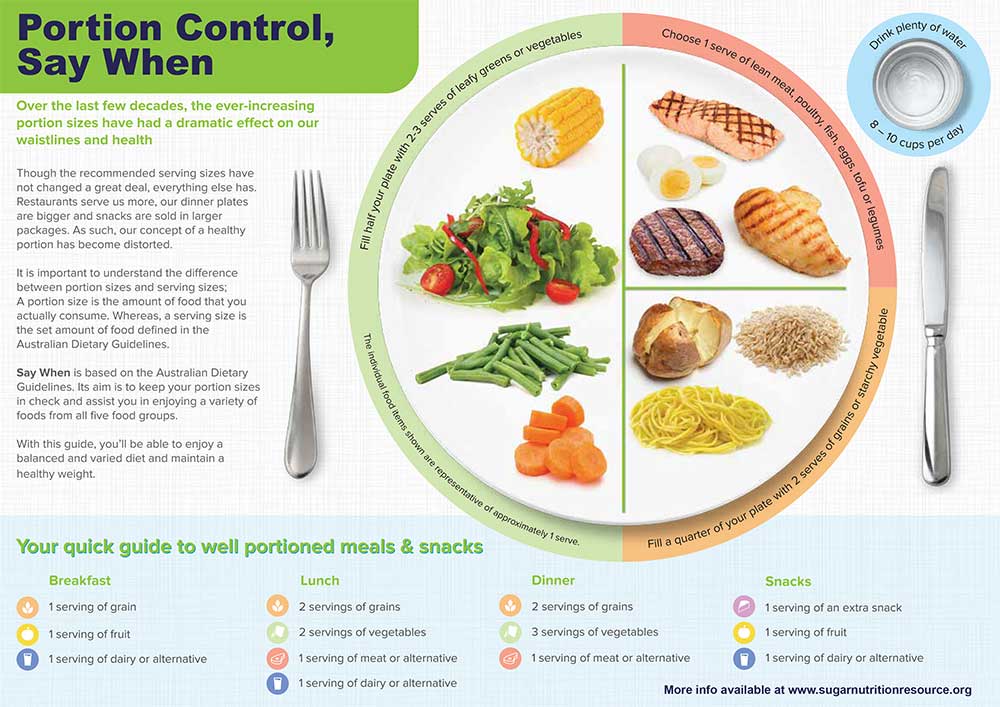
This image is property of www.sugarnutritionresource.org.
Portion Control Techniques
Portion control is crucial to prevent overfeeding and maintain a healthy weight for your fish. Here are some techniques to implement for effective portion control:
Avoiding Overfeeding
One of the most important aspects of portion control is avoiding overfeeding. Overfeeding can lead to obesity and health problems for your fish. Follow the recommended feeding guidelines for your fish species and monitor their response to the food.
Monitoring Fish’s Response to Food
Pay attention to how your fish react to the food you provide. If they are consuming the food eagerly and in a short period of time, it may indicate that you are providing too much. On the other hand, if they are displaying a lack of interest or leaving uneaten food behind, it may be a sign that you need to adjust the portion size.
Utilizing Feeding Rings or Nets
Feeding rings or nets are useful tools to help control the portion sizes and prevent food from spreading in the aquarium. These devices can be placed in the water to confine the food to a specific area, making it easier for your fish to consume their meal without overeating.
Using Automatic Feeders
Automatic feeders can be a convenient option for portion control, especially if you have a busy schedule or are away from home for extended periods. These devices can dispense a precise amount of food at predetermined times, ensuring that your fish receive consistent and controlled portions.
Best Practices for Feeding Fish
To ensure that you are providing the best care for your fish, here are some best practices to follow when feeding them:
Observing Fish During Feeding
Take the time to observe your fish while they eat. This will help you monitor their appetite, behavior, and overall health. Healthy fish will exhibit active feeding behavior and consume their food readily. If you notice any unusual behavior or signs of distress during feeding, it may indicate a problem with their diet or health.
Avoiding Excessive Food Waste
It’s important to provide your fish with an appropriate portion size to minimize food waste. Excessive food waste can lead to poor water quality and create a breeding ground for harmful bacteria. Avoid overfeeding and remove any uneaten food after each feeding to maintain a clean and healthy aquarium environment.
Maintaining Clean Water Conditions
Proper nutrition goes hand in hand with clean water conditions. Uneaten food and waste can quickly degrade the water quality in your aquarium, leading to stress and health issues for your fish. Regular water changes, proper filtration, and general tank maintenance are essential for maintaining a healthy aquatic environment.
Monitoring Fish Growth and Appearance
Regularly observe your fish’s growth and appearance to assess their overall health. Healthy fish will have a good body condition, vibrant colors, and active behavior. If you notice any changes in their growth rate, coloration, or behavior, it may be an indication of nutritional deficiencies or imbalances.
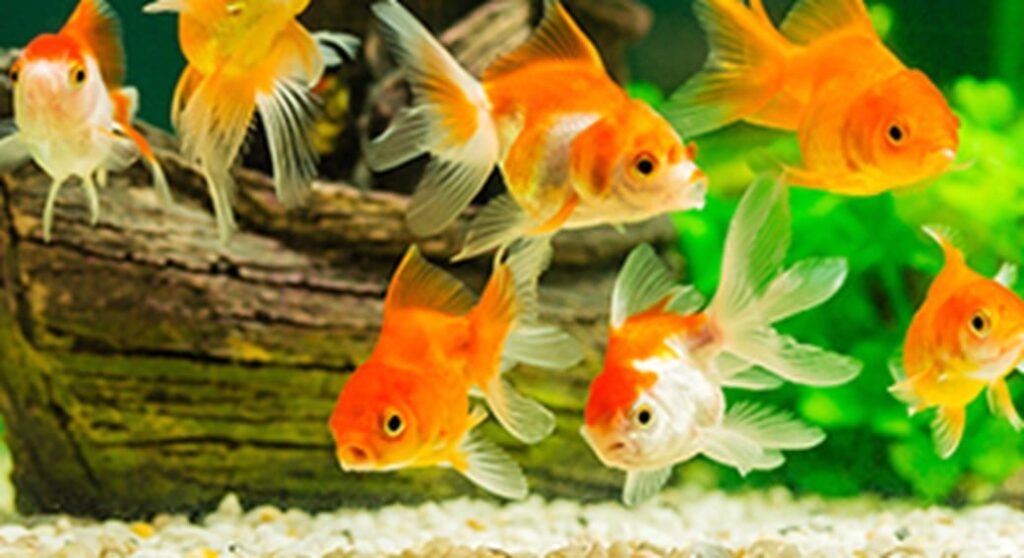
This image is property of www.vets4pets.com.
Common Mistakes to Avoid
Avoiding these common mistakes will help ensure that your fish receive a well-balanced diet:
Overfeeding
Overfeeding is a common mistake that can lead to obesity and poor health in fish. Follow the recommended feeding guidelines for your fish species and monitor their response to the food to prevent overfeeding.
Providing Inadequate Variety
Offering a varied diet is important to meet all of your fish’s nutritional needs. Providing a single type of food may result in nutrient deficiencies or boredom. Mix up their diet by offering different types of food, such as pellets, flakes, frozen foods, or live foods, to provide a well-rounded nutritional profile.
Ignoring Species-Specific Needs
Each fish species has its own specific dietary requirements. Ignoring these needs can lead to poor health and nutritional imbalances. Research the dietary preferences and requirements of your fish species and provide them with the appropriate food.
Inconsistency in Feeding Schedule
Inconsistency in their feeding schedule can disrupt their digestive system and lead to stress. Establish a consistent feeding routine to help your fish maintain a healthy appetite and overall well-being.
Addressing Specific Dietary Concerns
Different fish species have different dietary concerns. Here are some specific dietary considerations for various fish types:
Vegetarian Fish
Vegetarian fish, such as certain species of goldfish or plecos, require a diet rich in plant-based foods. Provide them with a variety of vegetables, such as peas, lettuce, spinach, or algae-based foods, to meet their dietary needs.
Carnivorous Fish
Carnivorous fish, like certain cichlids or predatory species, need a diet rich in proteins from animal sources. Offer them high-quality frozen or live foods, such as bloodworms, brine shrimp, or small fish, to ensure they receive the necessary protein for their growth and health.
Bottom-Dwelling Fish
Bottom-dwelling fish, such as catfish or loaches, have a diet that includes scavenging for food on the aquarium substrate. Provide them with sinking pellets or wafers specifically formulated for their needs to ensure they receive adequate nutrition.
Herbivorous Fish
Herbivorous fish, like certain species of tetras or silver dollars, primarily consume plant matter. Offer them a variety of vegetable-based foods, such as spirulina flakes, blanched vegetables, or specialized herbivore pellets, to meet their dietary requirements.
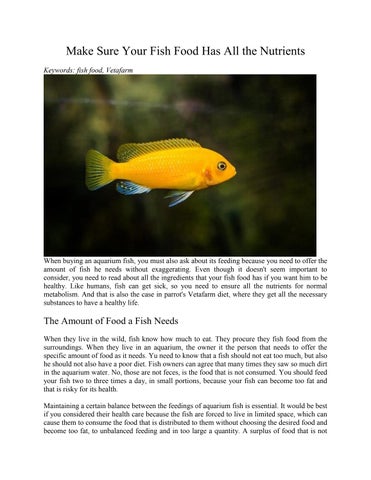
This image is property of image.isu.pub.
Feeding Tips for Different Fish Species
Here are some species-specific feeding tips to help you provide the best diet for your fish:
Goldfish
Goldfish are omnivorous and require a varied diet. Offer them a mix of high-quality flakes, pellets, and fresh vegetables, such as peas or lettuce. Avoid overfeeding and ensure that any vegetables are properly blanched to aid in digestion.
Tropical Fish
Tropical fish species have diverse dietary needs. Research the specific dietary requirements of your tropical fish and provide them with a combination of high-quality flakes, pellets, and frozen or live foods that meet their needs.
Cichlids
Cichlids are a diverse family of fish with varied dietary requirements. Depending on the species, cichlids can be herbivorous, carnivorous, or omnivorous. Research the specific dietary preferences of your cichlids and offer a diet that includes a mix of high-quality pellets, flakes, and frozen or live foods.
Siamese Fighting Fish
Siamese fighting fish, also known as bettas, are carnivorous and require a protein-rich diet. Offer them high-quality betta pellets or flakes, as well as frozen or live foods, such as brine shrimp or bloodworms, to meet their specific dietary needs.
Marine Fish
Marine fish have unique dietary requirements due to the intricacies of the marine ecosystem. Research the specific needs of your marine fish species and provide them with a diverse diet that includes high-quality marine pellets or flakes, frozen or live foods, and even marine algae.
Consulting a Veterinarian or Aquatic Specialist
If you have any concerns or questions about your fish’s diet, it’s always a good idea to consult a veterinarian or aquatic specialist. They can provide tailored advice based on your specific fish species and address any nutritional deficiencies or imbalances. Here are some reasons to seek professional advice:
Seeking Professional Advice
A veterinarian or aquatic specialist can provide valuable guidance when it comes to meeting your fish’s dietary needs. They can help you create a customized diet plan and address any concerns or questions you may have.
Diagnosing Nutritional Deficiencies or Imbalances
If you suspect that your fish may have nutritional deficiencies or imbalances, a professional can perform a thorough examination and diagnostic tests to identify any issues. They can then provide recommendations to correct these deficiencies and ensure your fish’s optimal health.
Getting Recommendations for Specialty Diets
In some cases, your fish may require a specialty diet to manage a specific health condition or dietary restriction. A veterinarian or aquatic specialist can provide recommendations and guidance on specialized foods or supplements to meet your fish’s specific needs.
By understanding your fish’s dietary needs, practicing portion control, and providing a well-balanced diet, you are taking important steps towards ensuring the health and well-being of your aquatic companions. Remember to do your research, observe your fish’s behavior and appearance, and seek professional advice when needed. Your fish will thank you with their vibrant colors, active behavior, and overall thriving condition.
